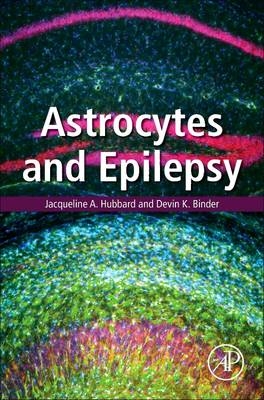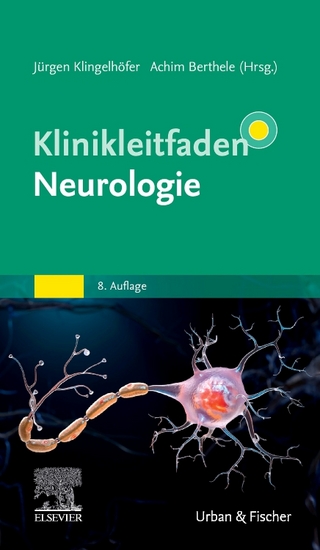
Astrocytes and Epilepsy
Academic Press Inc (Verlag)
978-0-12-802401-0 (ISBN)
Astrocytes and Epilepsy includes background explanatory text on astrocyte morphology and physiology, epilepsy models and syndromes, and evidence from both human tissue studies and animal models linking functional changes in astrocytes to epilepsy. Beautifully labelled diagrams are presented and relevant figures from the literature are reproduced to elucidate key findings and concepts in this rapidly emerging field. Astrocytes and Epilepsy is written for neuroscientists, epilepsy researchers, astrocyte investigators as well as neurologists and other specialists caring for patients with epilepsy.
Jacqueline A. Hubbard received her B.S. in biochemistry from the University of Vermont. Her M.S. and Ph.D. were both completed at the University of California, Riverside. She has been working in Devin Binder’s laboratory since 2011 and her research focuses on characterizing astrocytic changes in epilepsy. Specifically, she uses in vivo and in vitro techniques to characterize changes in aquaporin-4 (AQP4) and glutamate transporter 1 (GLT1) expression during epileptic pathogenesis that could ultimately be used to develop novel therapeutic strategies. She has presented her research at a number of national and international conferences and has co-authored a review article, a book chapter, and original research articles. She has also won awards for outstanding teaching, excellent presentations, as well as travel awards to attend international conferences. Originally from the Bay Area, Devin K. Binder went to Harvard University as an undergraduate, where he studied biology, anthropology, and neuroscience. He was awarded the Hoopes Prize at Harvard for his summa cum laude senior honors thesis “Serotonin and behavioral state. Deciding to pursue both neuroscience and clinical medicine, he enrolled in the M.D./Ph.D. program at Duke University. At Duke, he graduated 1st in his medical school class, and contributed to epilepsy neuroscience with his Ph.D. dissertation “The functional role of neurotrophins in the kindling model of epilepsy. Subsequently, Binder completed a one-year internship in general surgery at the University of California, San Francisco, and a six-year residency in neurological surgery at UCSF. At UCSF, he did a one-year fellowship in the laboratory of Dr. Alan Verkman, leader in the field of aquaporin biology. Following residency, Binder was awarded the Van Wagenen neurosurgical fellowship for one year of neuroscience and neurosurgery at the University of Bonn. There, he did another fellowship in the laboratory of Dr. Christian Steinhäuser, Director of the Institute for Cellular Neuroscience at the University of Bonn. Following a three-year stint at the University of California, Irvine, in the Departments of Neurological Surgery and Anatomy & Neurobiology, Binder joined the Division of Biomedical Sciences at the University of California, Riverside School of Medicine in January 2010. Binder runs the NIH-funded Translational Neuroscience Laboratory, and conducts research on astrocytes, epilepsy, and neurophotonics. Binder has been publishing in the epilepsy field since the 1990s, and has publications since 2004 relevant to astrocyte contribution to seizures and epilepsy. He is the previous co-author of 3 books, 2 related to epilepsy, currently holds 2 NIH grants related to epilepsy, and sits on leadership committees of the American Epilepsy Society.
1. History of astrocytes
2. Astrocytes in the mammalian brain
3. Gliotransmitters
4. Types of epilepsy
5. Neuropathology of human epilepsy
6. Astrocyte calcium signaling
7. Potassium channels
8. Water channels
9. Glutamate metabolism
10. Adenosine metabolism
11. Gap junctions
12. Blood-brain barrier disruption
13. Inflammation
14. Therapeutic targets and future directions
| Verlagsort | San Diego |
|---|---|
| Sprache | englisch |
| Maße | 191 x 235 mm |
| Gewicht | 970 g |
| Themenwelt | Medizin / Pharmazie ► Medizinische Fachgebiete ► Neurologie |
| Naturwissenschaften ► Biologie ► Humanbiologie | |
| Naturwissenschaften ► Biologie ► Zoologie | |
| ISBN-10 | 0-12-802401-1 / 0128024011 |
| ISBN-13 | 978-0-12-802401-0 / 9780128024010 |
| Zustand | Neuware |
| Haben Sie eine Frage zum Produkt? |
aus dem Bereich


